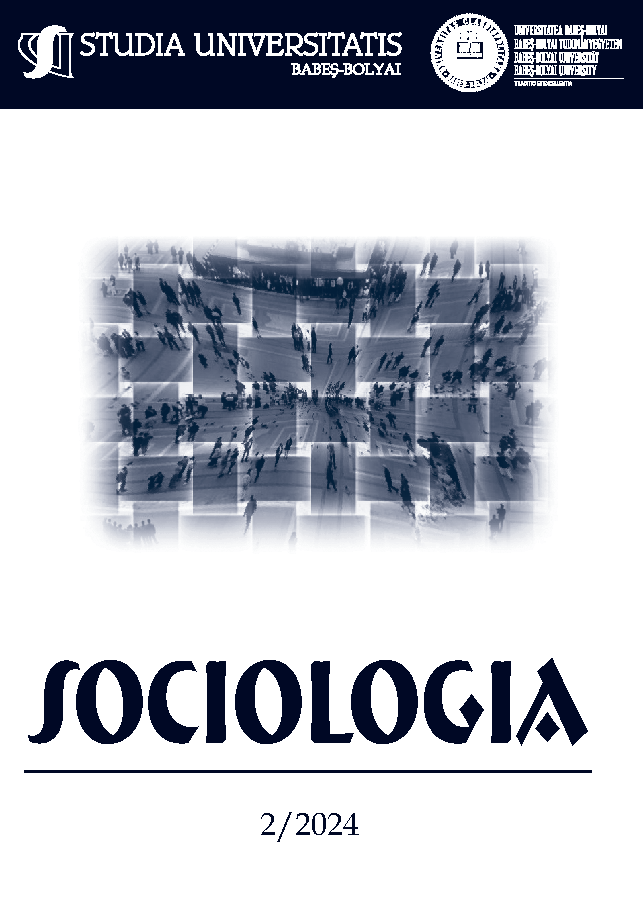CAREER ANCHORS REIMAGINED: EXPERTISE, STABILITY AND RECOGNITION IN STRUCTURED ORGANIZATIONAL FIELDS
DOI:
https://doi.org/10.2478/subbs-2024-0006Keywords:
career identity, career anchors, expertise, protean careers, stabilityAbstract
This article explores how professionals in a multinational IT company construct career identities that intertwine ambition, recognition, and stability—challenging dominant models that equate ambition with autonomy and instability. Drawing on a sequential exploratory mixed-methods design—48 qualitative interviews and a survey of 764 employees—it identifies “expertise” as a distinct career anchor defined not merely by technical skill, but by internal recognition, symbolic legitimacy, and trusted authority. Quantitative validation through factor analysis confirmed a revised nine-anchor model, with widespread hybrid identities (e.g., expertise + lifestyle, expertise + security) emerging as normative, not transitional. The article reframes security not as passivity but as an entitlement earned through excellence. Interpreted through a career field and habitus lens, these findings reposition career anchors as relational identity positions shaped by organizational recognition regimes, symbolic capital, and contextual fit. The study contributes a grounded critique of protean and boundaryless career models, proposing an alternative understanding of stability, ambition, and growth in contemporary structured work environments.
References
1. Arthur, Michael B., and Denise M. Rousseau. 1996. The Boundaryless Career: A New Employment Principle for a New Organizational Era. Oxford: Oxford University Press.
2. Arthur, Michael B., Svetlana N. Khapova, and Caroline P. Wilderom. 2005. “Career Success in a Boundaryless Career World.” Journal of Organizational Behavior 26(2): 177–202.
3. Baruch, Yehuda. 2004. “Transforming Careers: From Linear to Multidirectional Career Paths: Organizational and Individual Perspectives.” Career Development International 9(1): 58–73.
4. Briscoe, Jon P., and Douglas T. Hall. 2006. “The Interplay of Boundaryless and Protean Careers: Combinations and Implications.” Journal of Vocational Behavior 69(1): 4–18. https://doi.org/10.1016/j.jvb.2005.09.002
5. Cabot, Jérôme, and Stéphane Gagnon. 2021. “Understanding the Career Dynamics of IT Professionals in Digital Transformation: A Review and Research Agenda.” Information Systems Journal 31(4): 565–589.
6. Caza, Brianna B., Heather Vough, and Himanshu Puranik. 2018. “Identity Work in Organizations and Occupations: Definitions, Theories, and Pathways Forward.” Journal of Organizational Behavior 39(7): 889–910.
7. Costigan, Robert D., Laura M. Donahue, and Nira Danziger. 2016. “Testing the Factorial Validity of Schein’s Career Anchors Orientation Inventory.” Journal of Career Assessment 24(3): 481–496. https://doi.org/10.1177/1069072715580414
8. Danziger, Nira, Dalia Rachman-Moore, and Ravit Valency. 2008. “The Construct Validity of Schein’s Career Anchors Orientation Inventory.” Career Development International 13(1): 7–19.
9. De Vos, Ans, and Beatrice I. J. M. Van der Heijden. 2015. “Current Thinking on Contemporary Careers: The Key Roles of Sustainable HRM and Sustainability of Careers.” Current Opinion in Environmental Sustainability 14: 9–13.
10. Feldman, Daniel C., and Mark C. Bolino. 1996. “Careers within Careers: Reconceptualizing the Nature of Career Anchors and Their Consequences.” Human Resource Management Review 6(2): 89–112.
11. Granrose, Cherlyn S., and John D. Portwood. 1987. “Matching Individual Career Plans and Organizational Career Management.” Academy of Management Journal 30(4): 699–720.
12. Hall, Douglas T. 1996. “Protean Careers of the 21st Century.” Academy of Management Executive 10(4): 8–16.
13. Hall, Douglas T., and Philip H. Mirvis. 1995. “The New Career Contract: Developing the Whole Person at Midlife and Beyond.” Journal of Vocational Behavior 47(3): 269–289.
14. Iellatchitch, Alexandre, Wolfgang Mayrhofer, and Michael Meyer. 2003. “Career Fields: A Small Step towards a Grand Career Theory?” International Journal of Human Resource Management 14(5): 728–750.
15. Inkson, Kerr. 2004. “Careers and Organizations: A Figure-Ground Problem.” Journal of Occupational and Organizational Psychology 77(1): 85–98.
16. Inkson, Kerr, Hugh Gunz, Sanjeewa Ganesh, and Juliet Roper. 2012. “Boundaryless Careers: Bringing Back Boundaries.” Organization Studies 33(3): 323–340. https://doi.org/10.1177/0170840611435600
17. Mayrhofer, Wolfgang, Michael Meyer, and Johannes Steyrer. 2005. “Contextual Issues in the Study of Careers.” In Handbook of Career Studies, edited by Michael B. Arthur, R. J. DeFillippi, and Michael B. Arthur, 215–240. Thousand Oaks, CA: Sage.
18. Mayrhofer, Wolfgang, Michael Meyer, and Johannes Steyrer. 2004. “Going beyond the Individual: Some Potential Contributions from a Career Field and Habitus Perspective for Global Career Research and Practice.” Journal of Management Development 23(9): 870–884.
19. O’Neil, Deborah A., Margaret M. Hopkins, and Diana Bilimoria. 2008. “Women’s Careers at the Start of the 21st Century: Patterns and Paradoxes.” Journal of Business Ethics 80(4): 727–743.
20. Ramakrishna, H. V., and Denise Potosky. 2003. “Conceptualizing and Measuring Career Anchor Changes Using a Longitudinal Design.” Journal of Vocational Behavior 63(2): 181–199.
21. Rodrigues, Ricardo A., and David Guest. 2010. “Have Careers Become Boundaryless?” Human Relations 63(8): 1157–1175. https://doi.org/10.1177/0018726709354344
22. Schein, Edgar H. 1978. Career Dynamics: Matching Individual and Organizational Needs. Reading, MA: Addison-Wesley.
23. Schein, Edgar H. 1990. Career Anchors: Discovering Your Real Values. San Diego, CA: Pfeiffer & Company.
24. Sullivan, Sherry E., and Michael B. Arthur. 2006. “The Evolution of the Boundaryless Career Concept: Examining Physical and Psychological Mobility.” Journal of Vocational Behavior 69(1): 19–29.
25. Tams, Svenja, and Michael B. Arthur. 2010. “New Directions for Boundaryless Careers: Agency and Interdependence in a Changing World.” Journal of Organizational Behavior 31(5): 629–646.
26. Tomlinson, Jennifer, Marian Baird, Peter Berg, and Rae Cooper. 2018. “Flexible Careers across the Life Course: Advancing Theory, Research and Practice.” Human Relations 71(1): 4–22.
27. Wils, Thierry, Lise Wils, and Michel Tremblay. 2014. “Toward a Career Anchor Structure: An Empirical Investigation of Engineers.” Relations Industrielles / Industrial Relations 69(2): 351–376.
Downloads
Published
How to Cite
Issue
Section
License
Copyright (c) 2025 Studia Universitatis Babeș-Bolyai Sociologia

This work is licensed under a Creative Commons Attribution-NonCommercial-NoDerivatives 4.0 International License.



